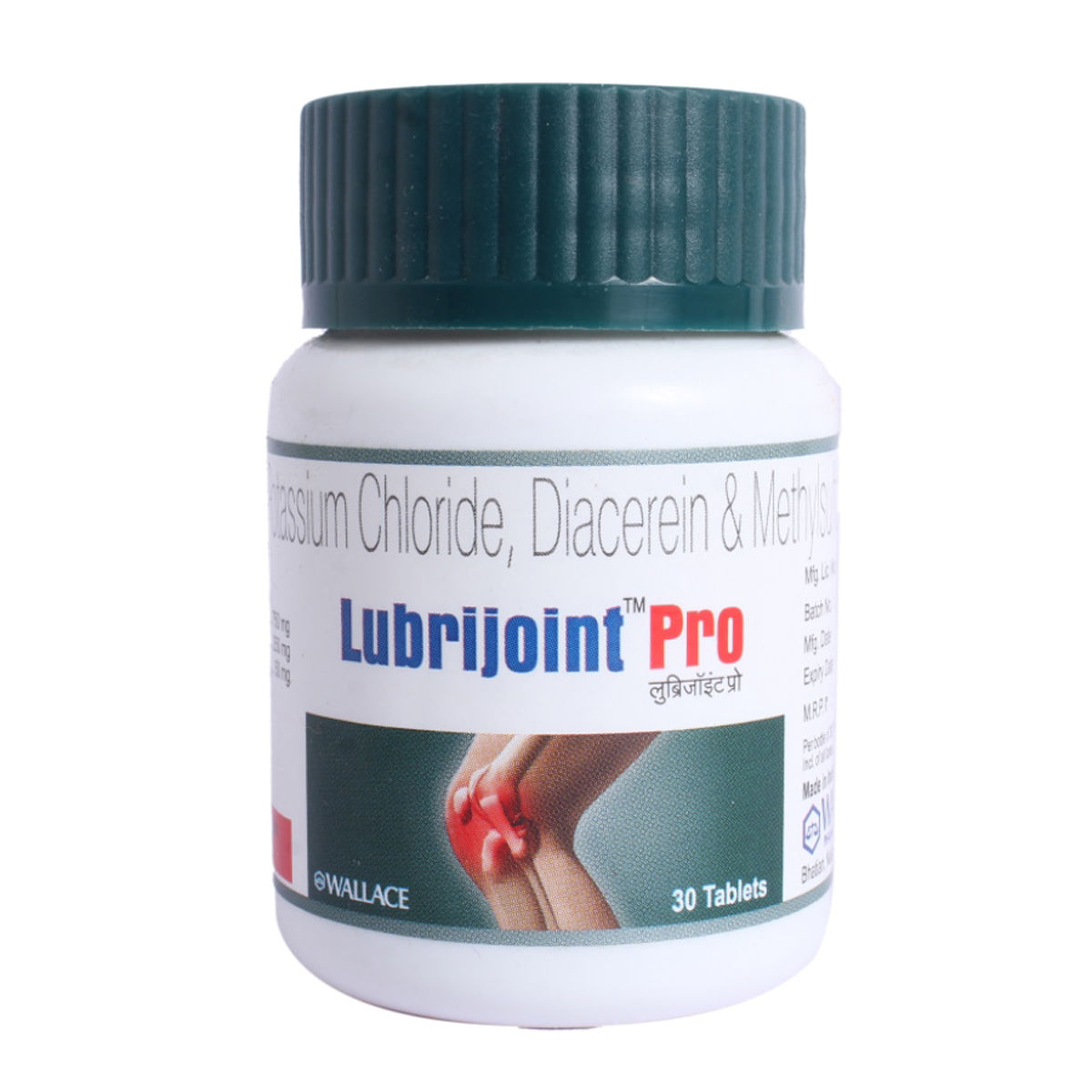Knee-Joint Tablet 10's
₹188.1*
MRP ₹209
10% off
₹177.65*
MRP ₹209
15% CB
₹31.35 cashback(15%)
Free Delivery
With Circle membership
(Inclusive of all Taxes)
This offer price is valid on orders above ₹800. Apply coupon PHARMA10/PHARMA18 (excluding restricted items)
Know Your Delivery Time
Provide Delivery Location

Whats That

Secure Payment

India's Most Trusted Pharmacy

Genuine Products
Manufacturer/Marketer :
Consume Type :
Return Policy :
Expires on or after :
About Knee-Joint Tablet
Knee-Joint Tablet is used to reduce the pain of osteoarthritis (OA). Osteoarthritis is a chronic (lifelong) joint condition in which glucosamine sulfate (a chemical found in the human body, especially in joints) gets reduced. When this chemical gets reduced, the cartilage breaks down and becomes thin, which causes friction between the bones, leading to wear and tear (damage) of the joint tissues. Symptoms include pain, stiffness, inflammation of the joints, and reduced locomotion.
Knee-Joint Tablet contains Diacerein, Dimethyl sulfoxide, and Glucosamine. Diacerein slows down the breakdown of cartilage and helps to reduce pain and swelling. Dimethyl sulfoxide reduces the inflammation of the joints. Glucosamine reduces the breakdown of cartilage and helps to repair joints. Together, Knee-Joint Tablet can lower pain, swelling, and inflammation of the joints.
You should take this medicine as your doctor has instructed. The common side-effects of Knee-Joint Tablet are headache, tiredness, nausea, abdominal pain, indigestion, onion-like taste in the mouth, diarrhoea, discolouration of the urine, constipation, and wind (flatulence). These side effects are usually mild and temporary. However, if any of these side effects persist or get worse, inform your doctor immediately.
It is not recommended to take Knee-Joint Tablet if you are allergic to any of its contents, shellfish, or soya. Before taking Knee-Joint Tablet , inform your doctor if you have glucose intolerance, liver or kidney disease, high cholesterol, asthma, bladder or kidney cancer, and vision problems. It is not recommended for use in children, pregnant women, and breastfeeding mothers. It should be used with caution in the elderly. Avoid alcohol consumption as it may increase the risk of side effects. Knee-Joint Tablet may decrease alertness, so do not drive or operate heavy machinery if you are not fully alert.
Uses of Knee-Joint Tablet
Medicinal Benefits
Knee-Joint Tablet improves joint's movement and flexibility by helping in the formation of cartilage (the soft tissue that cushions the joints) and lubricating the joints. It helps to repair joints and slow down the progression of the disease. It helps to relieve pain, swelling, and inflammation of the joints. Pain relief and improved motility can help you to perform daily activities easily.
Side Effects of Knee-Joint Tablet
- Headache
- Tiredness
- Nausea
- Abdominal pain
- Indigestion
- Onion-like taste in the mouth
- Diarrhea
- Discoloration of the urine
- Constipation
- Wind (flatulence)
Directions for Use
Storage
Drug Warnings
Knee-Joint Tablet may cause high cholesterol, so it should be used with caution in patients with heart disease risk. Knee-Joint Tablet may worsen the symptoms of asthma. You may notice discoloration of urine and an onion-like taste in the mouth. However, these effects are mild and do not require medical attention. If you notice any changes in vision while using Knee-Joint Tablet , inform your doctor immediately as this medicine may increase pressure in the eye.
Therapeutic Class
Drug-Drug Interactions
Drug-Food Interactions
Diet & Lifestyle Advise
Include more glucosamine, chondroitin sulfate, vitamin D, calcium-enriched supplements. Besides this, turmeric and fish oils can help in reducing inflammation in the tissue.
Please do not go for heavy exercise as it may increase your joint pain in arthritis. Instead, you can do stretching, low impact aerobic exercise like walking on a treadmill, bike riding, and swimming. You can also strengthen your muscle strength by lifting light weights.
In the chronic condition of arthritis or joint pain, including fish like salmon, trout, tuna, and sardines. These fishes are enriched with omega-3 fatty acids that minimum level of chemical called cytokines, which ramp up inflammation.
Your sitting posture is important, especially when you have pain and inflammation conditions. Try to sit little as possible, and only for a short time (10-15 min). Use back support like a rolled-up towel at the back of your curve to minimize pain. Keep your knees and hips at a right angle. Besides this, you can use a footrest if required.
Habit Forming
How Knee-Joint Tablet Works
What if I have taken an overdose of Knee-Joint Tablet
Alcohol
Caution
Avoid consuming alcohol while taking Knee-Joint Tablet as it may increase the risk of side-effects.
Pregnancy
Unsafe
Knee-Joint Tablet may cause harmful effects on the unborn baby, so your doctor may recommend Knee-Joint Tablet only if the benefits outweigh the risks.
Breast Feeding
Unsafe
Knee-Joint Tablet may pass into breastmilk. Consult your doctor before taking Knee-Joint Tablet , your doctor will decide whether Knee-Joint Tablet can be taken by breastfeeding mothers or not.
Driving
Caution
Knee-Joint Tablet may decrease alertness, so do not drive or operate machinery if you are not fully alert.
Liver
Caution
Knee-Joint Tablet should be used with caution in patients with liver diseases. The dose may have to be adjusted by the doctor as required.
Kidney
Caution
Knee-Joint Tablet should be used with caution in patients with liver diseases. The dose may have to be adjusted by the doctor as required.
Children
Unsafe
Knee-Joint Tablet should not be given to children and adolescents below 18 years as safety and efficacy have not been established.
Country of origin
Manufacturer/Marketer address
Author Details
We provide you with authentic, trustworthy and relevant information
FAQs
Disclaimer
Product Substitutes










